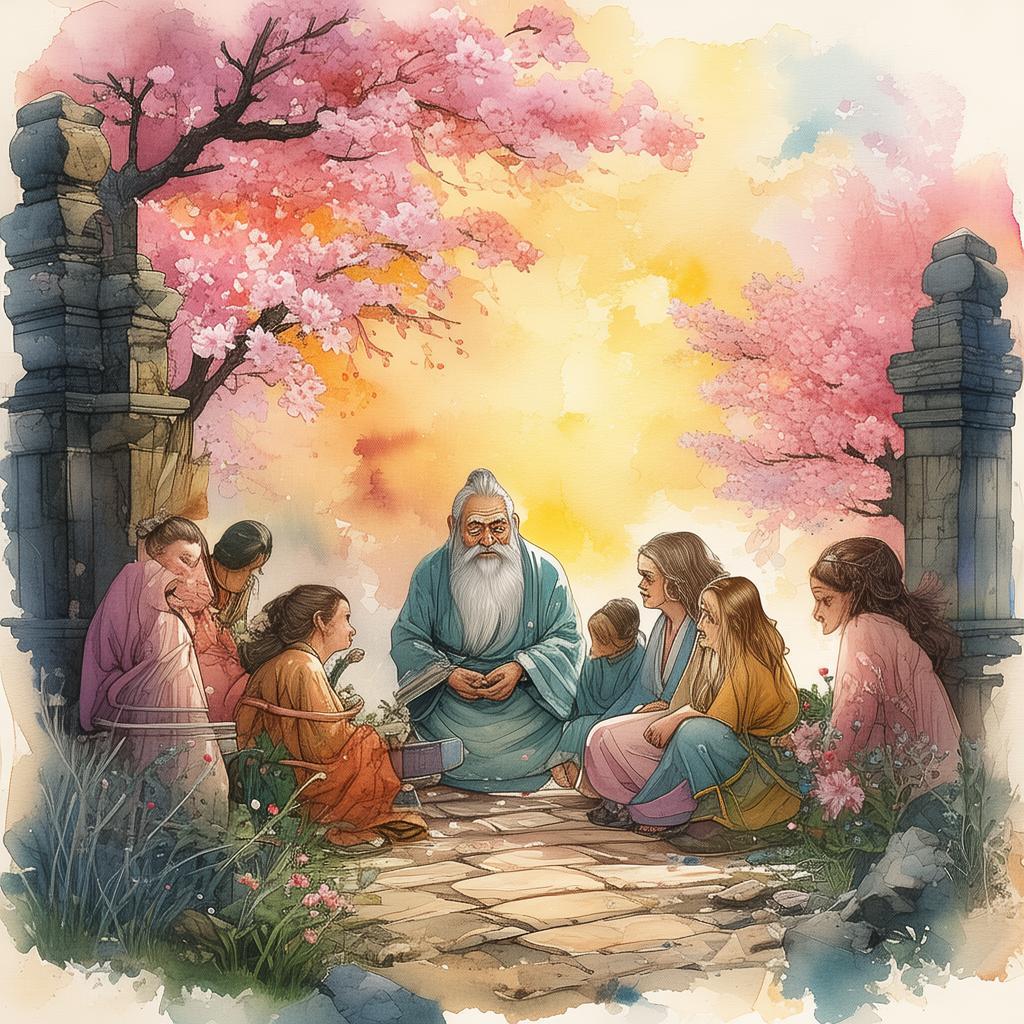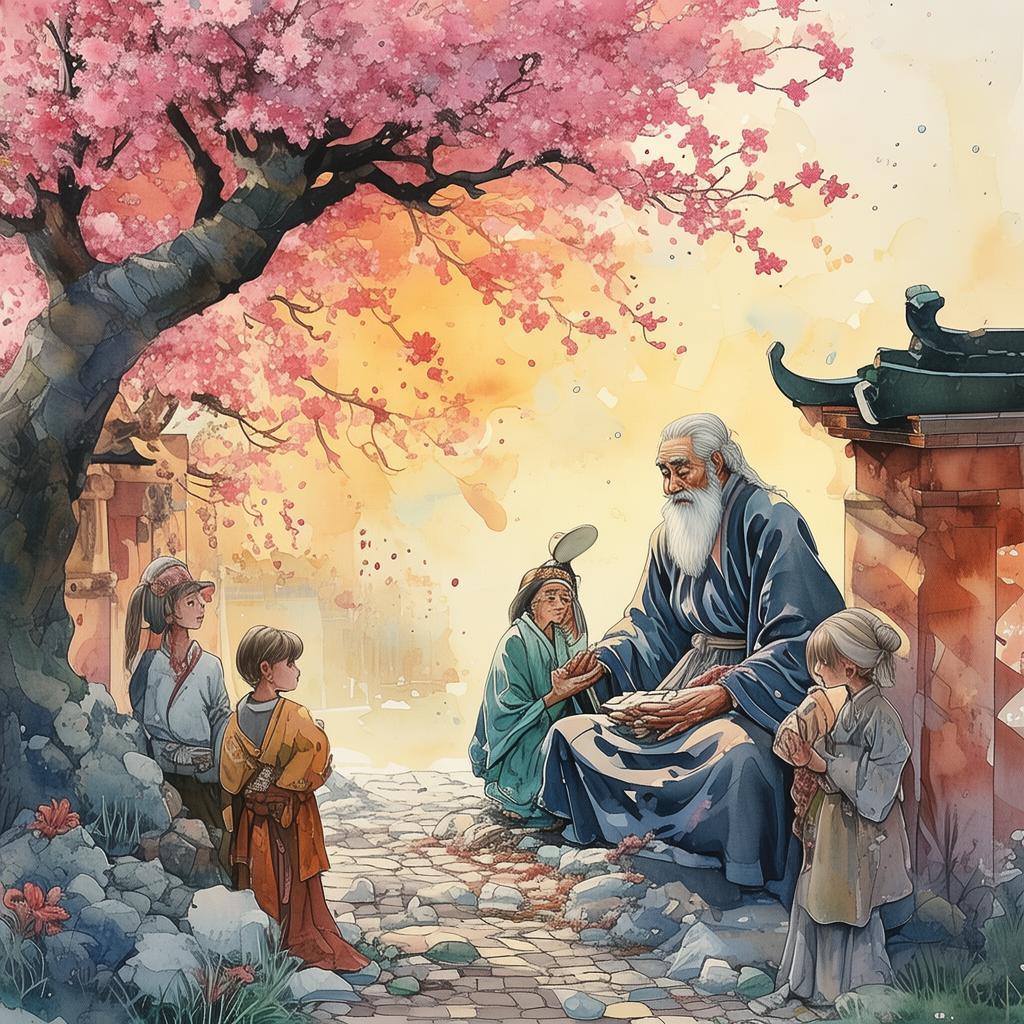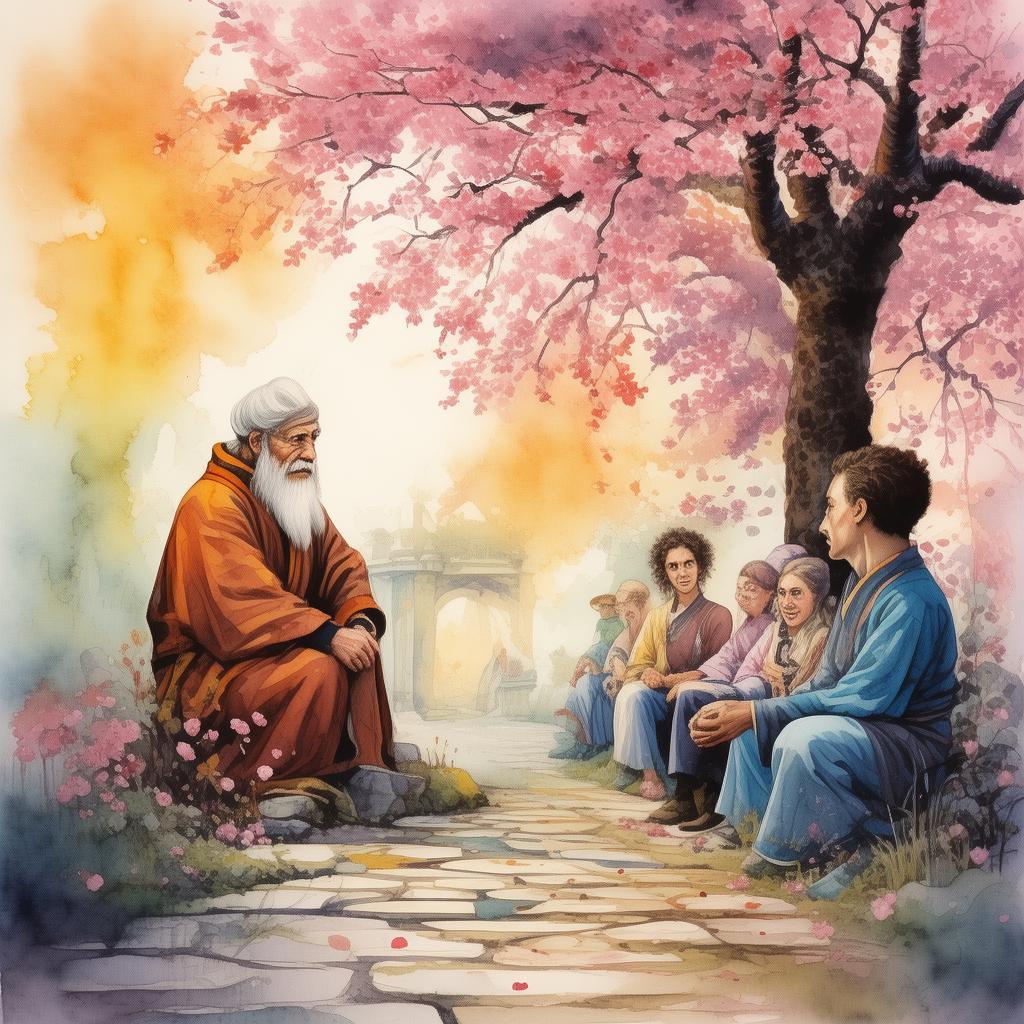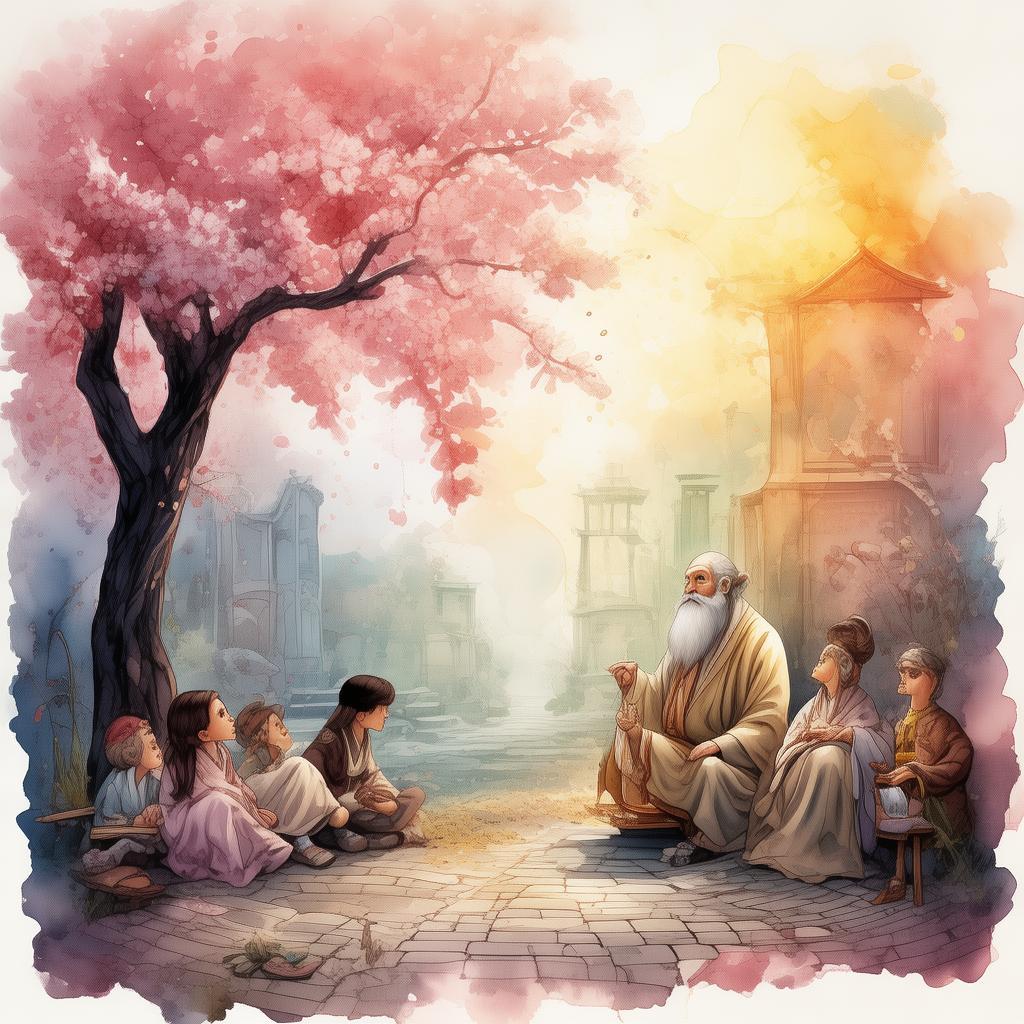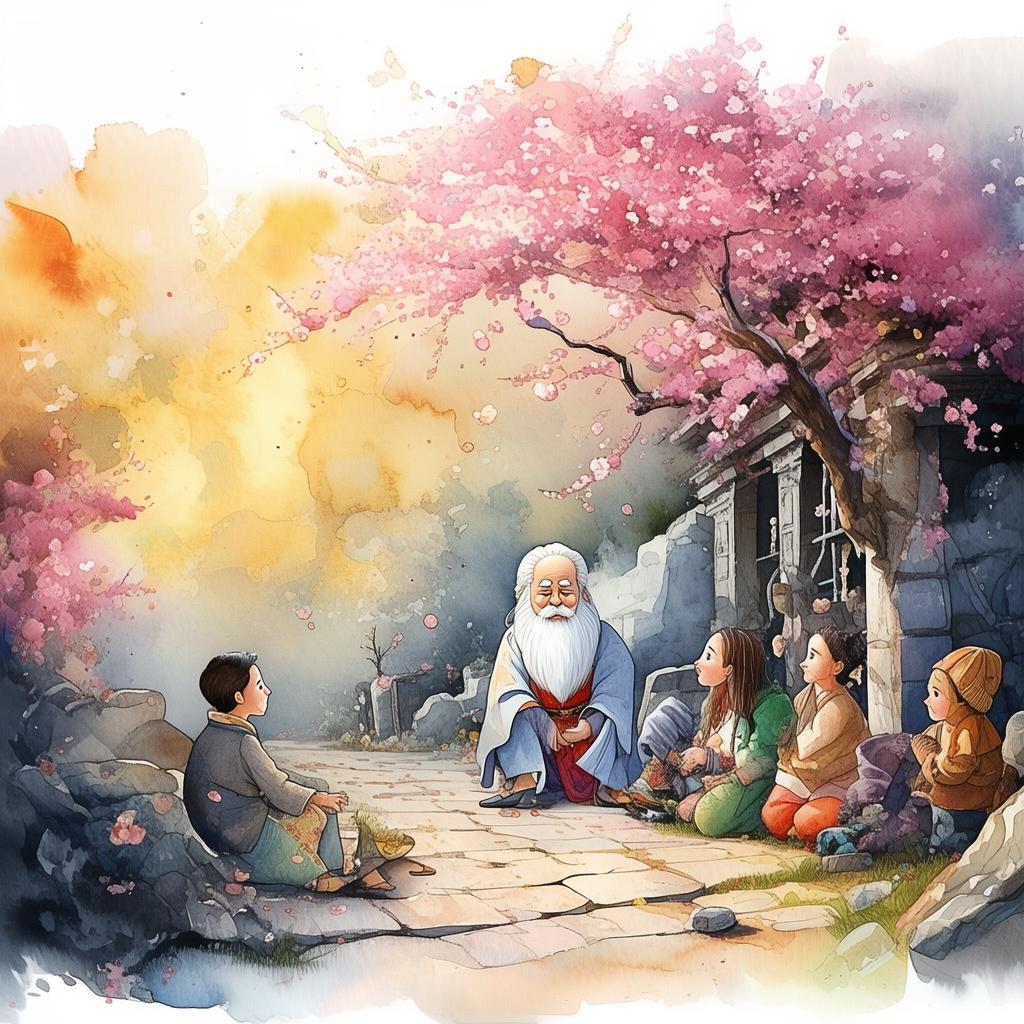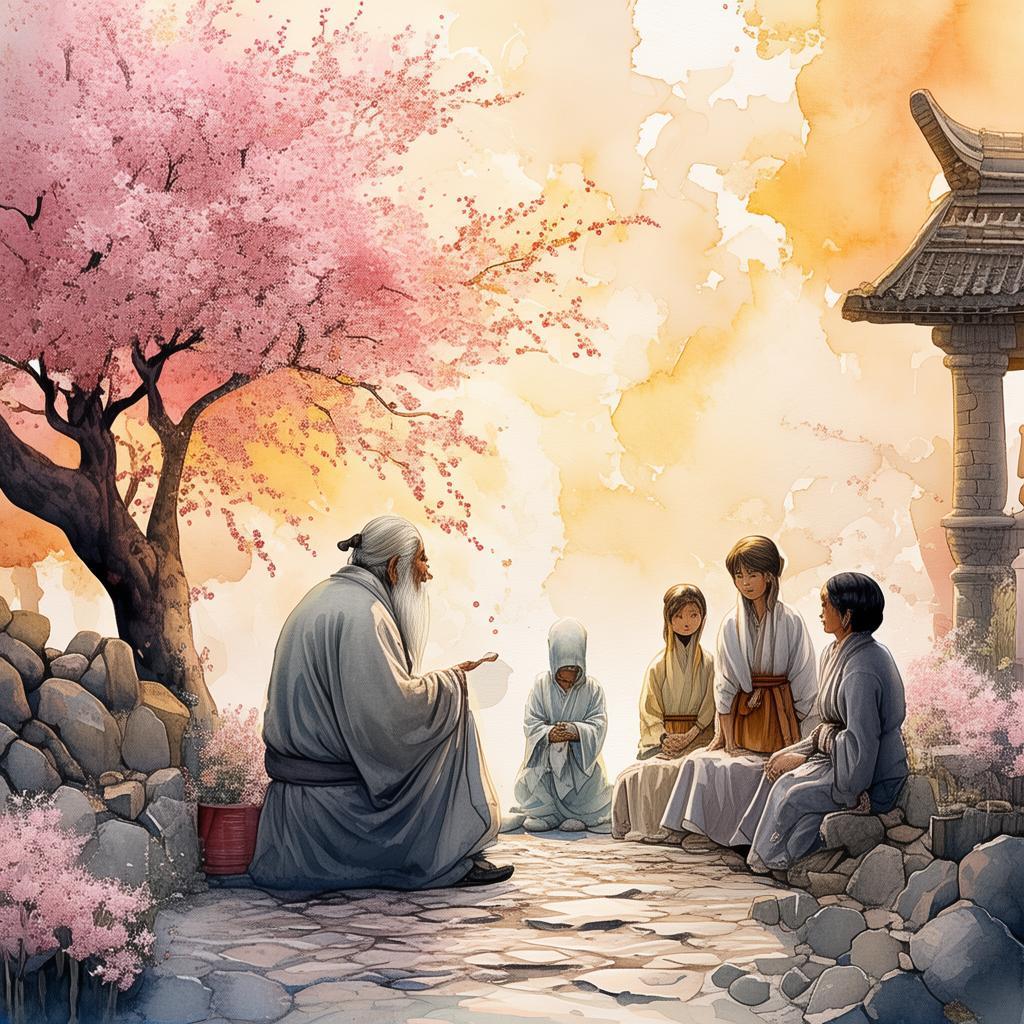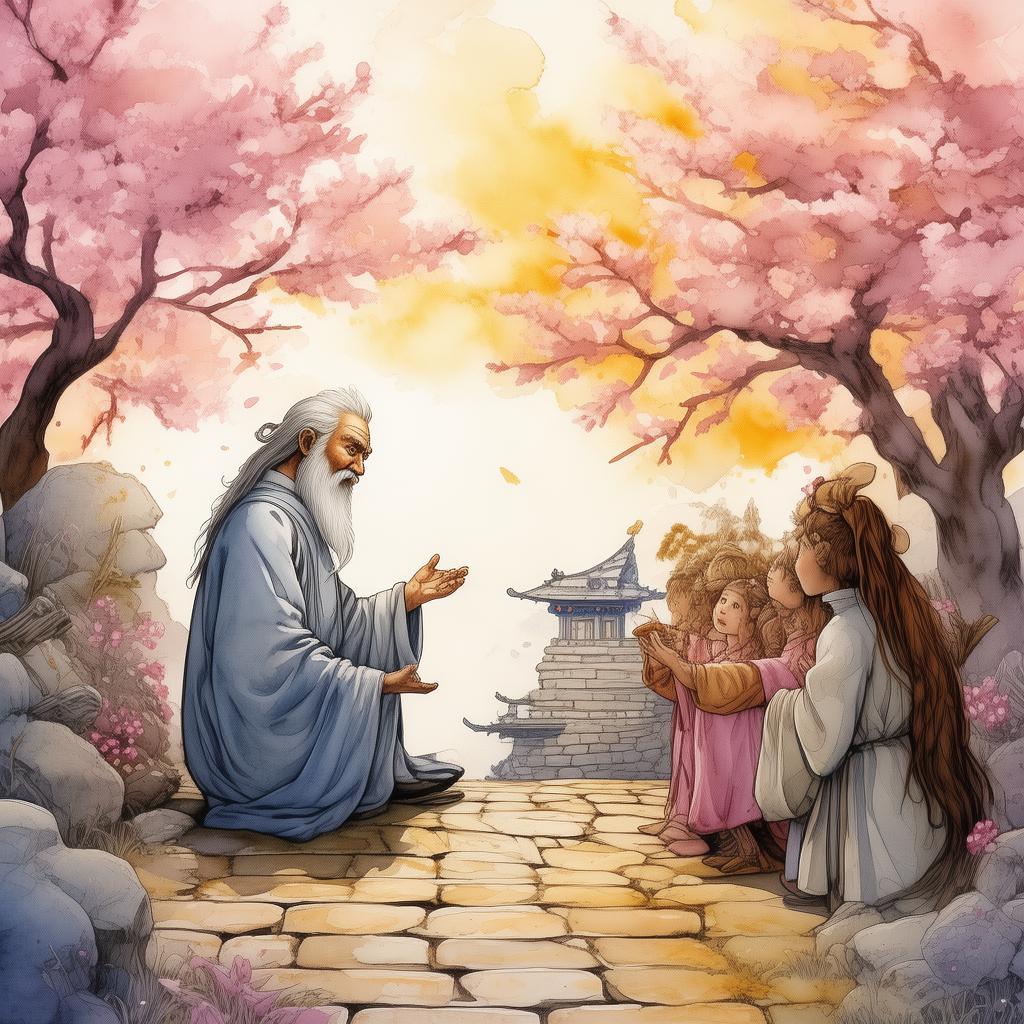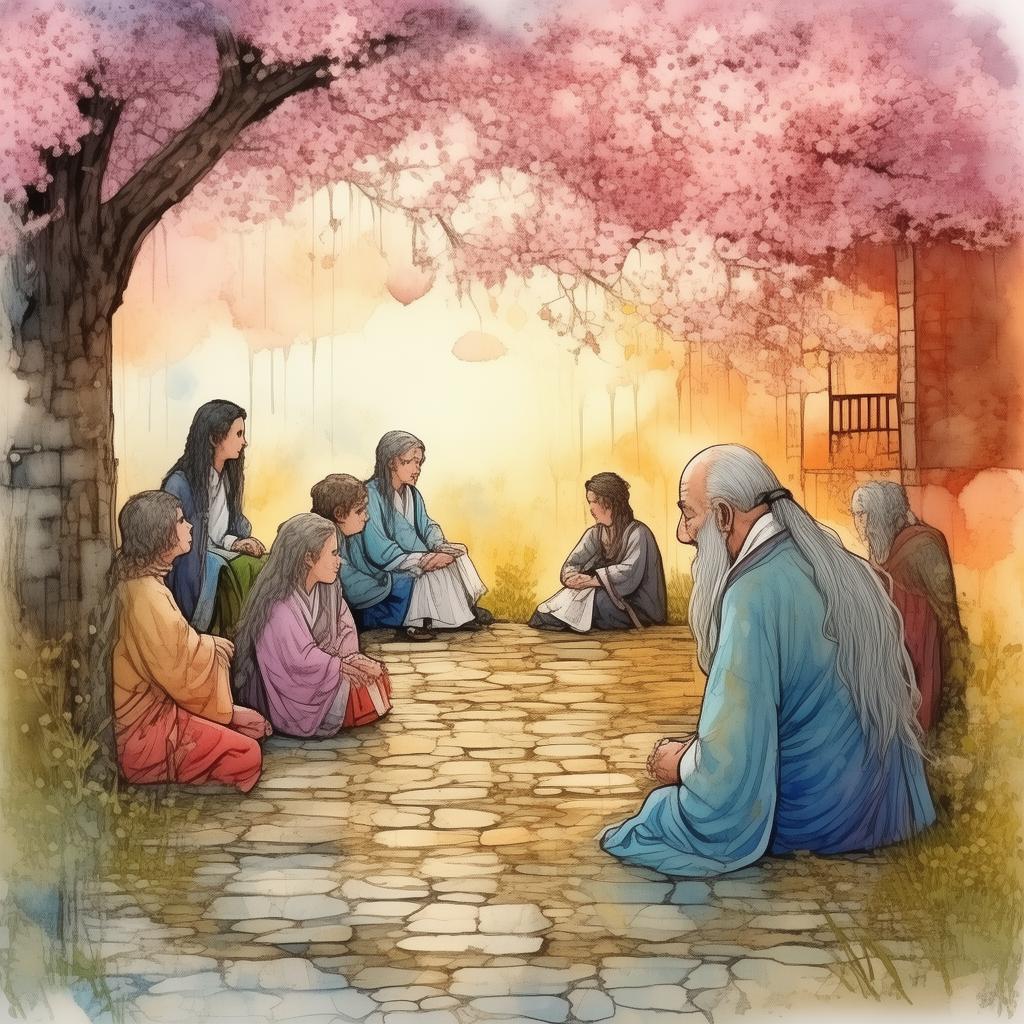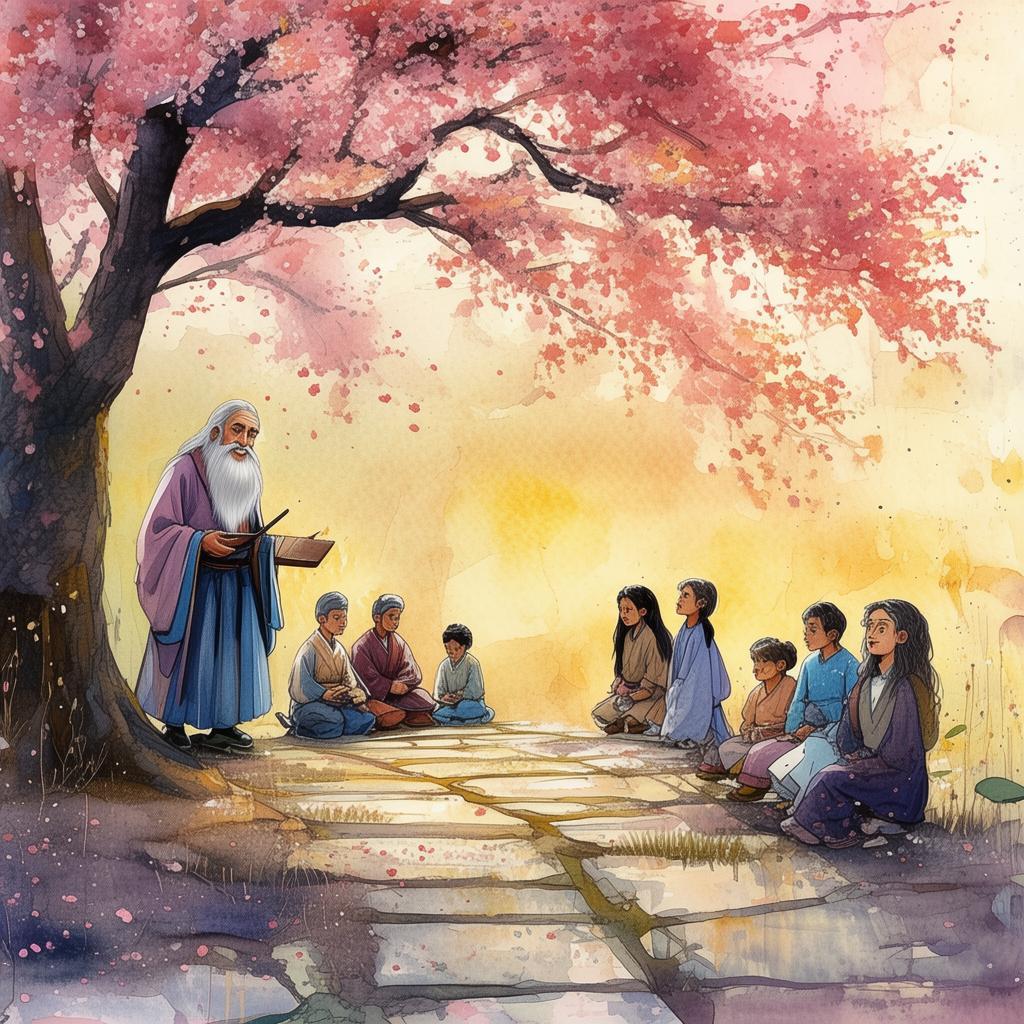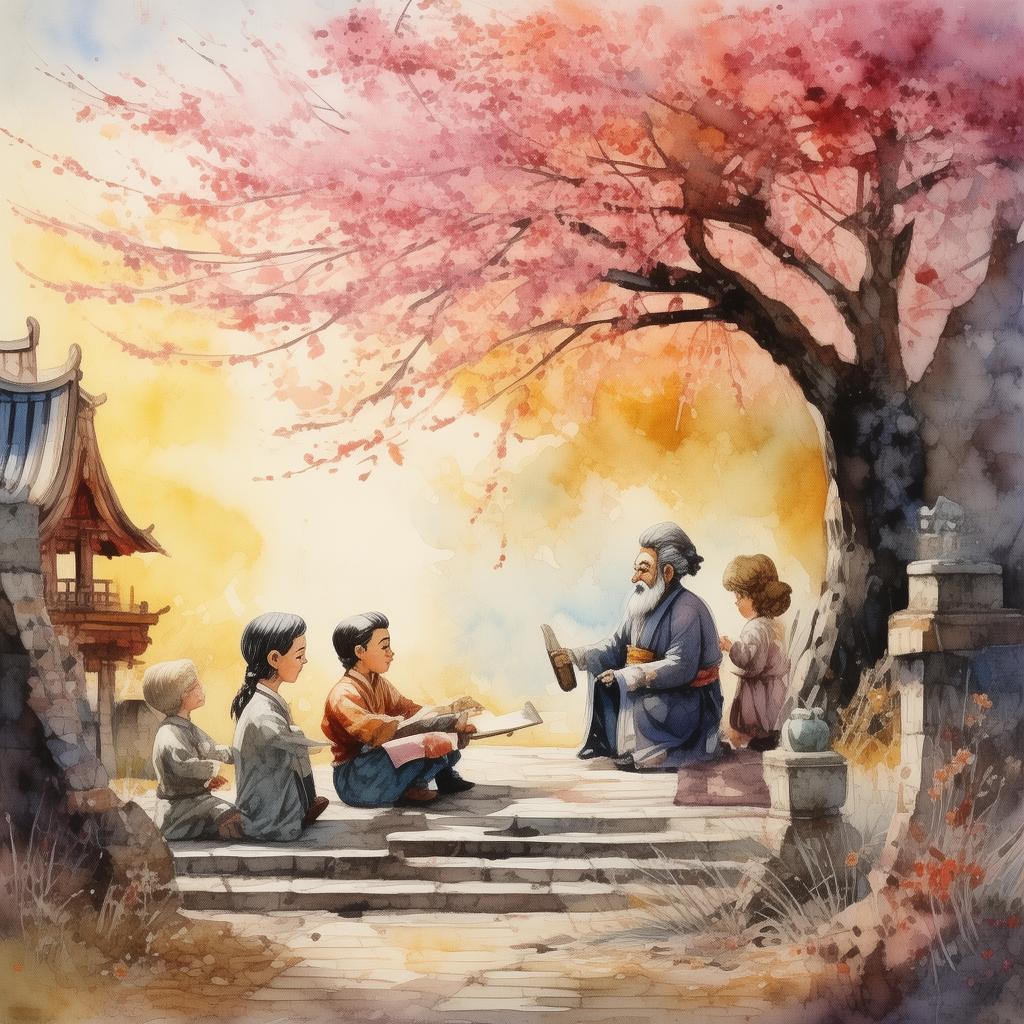The Quest for the Forgotten Throne
In the heart of the ancient city of Yuan, where the sun dipped below the horizon, casting a golden glow over the remnants of a once-great empire, there lay a scroll known as "The Scroll of the Lost Kingdom." It was a relic of the past, a testament to the grandeur of a civilization that had faded into obscurity. The scroll spoke of a forgotten throne, a symbol of power and mystery that had been lost to time.
Amidst the dust and whispers of the past, a young historian named Liang Hua found himself drawn to the scroll. Driven by a thirst for knowledge and the allure of the unknown, Liang was determined to uncover the secrets it held. With a mixture of excitement and trepidation, he embarked on a journey that would change his life forever.
As he delved deeper into the scroll's cryptic texts, Liang discovered that the throne was not just a relic of history, but a key to a hidden kingdom that had been shrouded in mystery for centuries. The scroll spoke of a kingdom that had vanished without a trace, its people and culture lost to the annals of time. The throne, according to the scroll, was the only thing that could bring the kingdom back to life.
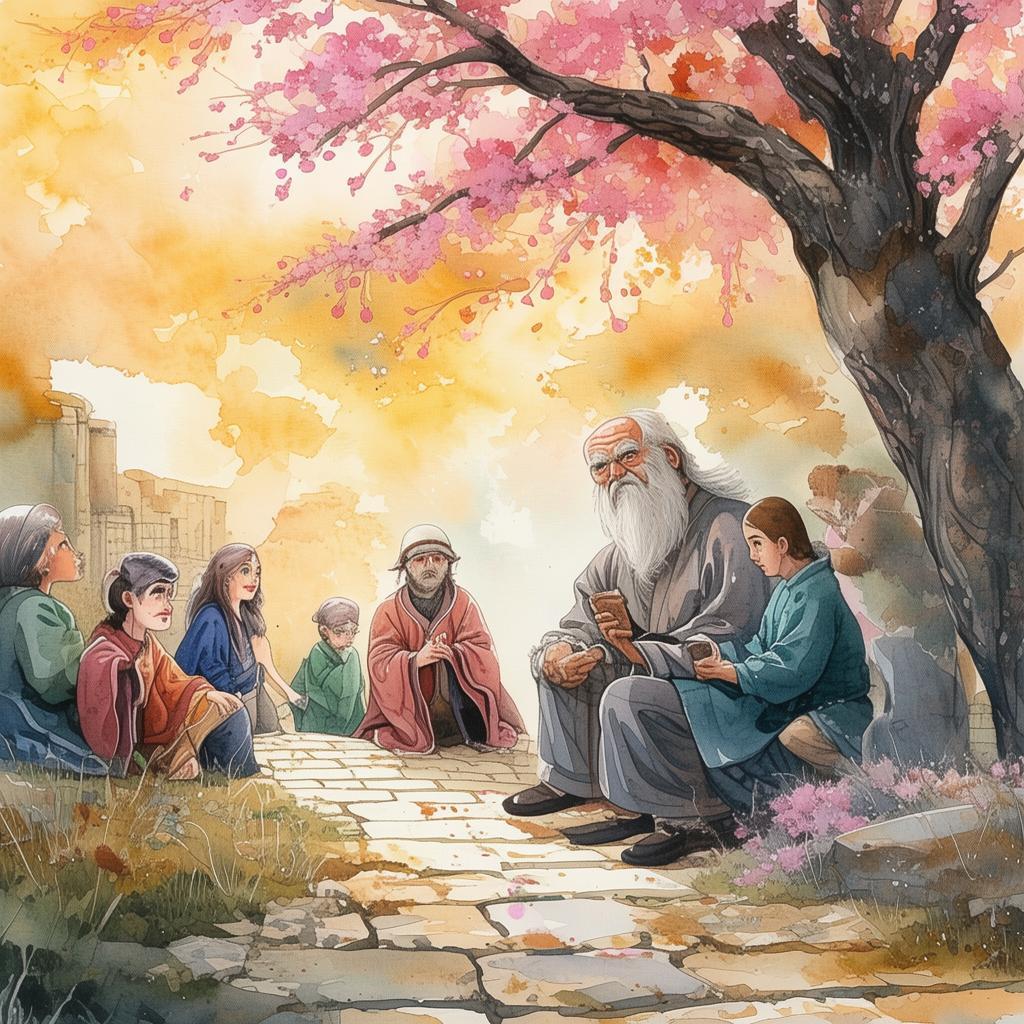
Determined to uncover the truth, Liang sought out the guidance of a mysterious figure known only as the Scroll Keeper. The Scroll Keeper was a wise and enigmatic man, rumored to have traveled through time and space, uncovering secrets long forgotten by the world. Liang believed that with the Scroll Keeper's help, he could unravel the mystery of the forgotten throne.
The Scroll Keeper, with a knowing smile, revealed that the throne was not just a physical object, but a symbol of the unity and spirit of the kingdom. To find the throne, Liang would have to embark on a quest that would take him through the ages, facing trials and challenges that would test his resolve and courage.
The first trial was a riddle that had been passed down through generations. The Scroll Keeper handed Liang a piece of parchment with a cryptic message: "The king sits in silence, his eyes watch the stars. The throne is not of gold, but of light that never dies." Liang pondered the riddle for days, until a sudden realization struck him. The throne was not a physical object, but a representation of the king's wisdom and leadership, a beacon of light that would guide the kingdom through dark times.
The second trial was a journey through the ancient kingdom's capital, where Liang had to find the hidden entrance to the throne room. He navigated through the labyrinthine streets, guided by the faint glow of a single lantern that seemed to appear and disappear with the wind. In the end, he discovered that the throne room was not a physical place, but a state of mind, a collective memory of the kingdom's people.
The final trial was a test of Liang's character. He was confronted by a rival historian, who believed that the throne was a myth and sought to claim the glory for himself. In a heated exchange, Liang was forced to defend his beliefs and the value of historical truth. It was a battle of wits and wills, but Liang's unwavering commitment to the truth won the day.
With the trials behind him, Liang returned to the Scroll Keeper, who revealed that the throne had been found. It was not a physical object, but the spirit of the kingdom that had been awakened by Liang's quest. The Scroll Keeper presented Liang with a simple, yet powerful symbol—a crown of light that could be worn by any who believed in the kingdom's legacy.
As Liang stepped back into the modern world, he realized that the true value of the throne was not in its power, but in the unity and spirit it represented. He returned to the scroll, now understanding that the quest for the forgotten throne was not just a historical endeavor, but a journey of self-discovery and the rediscovery of the past.
The story of Liang Hua and the forgotten throne spread far and wide, inspiring others to seek out the truth and the spirit of their own past. The scroll remained a testament to the power of history and the enduring legacy of a people long forgotten, a reminder that the past is not just a relic of the past, but a living, breathing part of our present and future.
✨ Original Statement ✨
All articles published on this website (including but not limited to text, images, videos, and other content) are original or authorized for reposting and are protected by relevant laws. Without the explicit written permission of this website, no individual or organization may copy, modify, repost, or use the content for commercial purposes.
If you need to quote or cooperate, please contact this site for authorization. We reserve the right to pursue legal responsibility for any unauthorized use.
Hereby declared.
